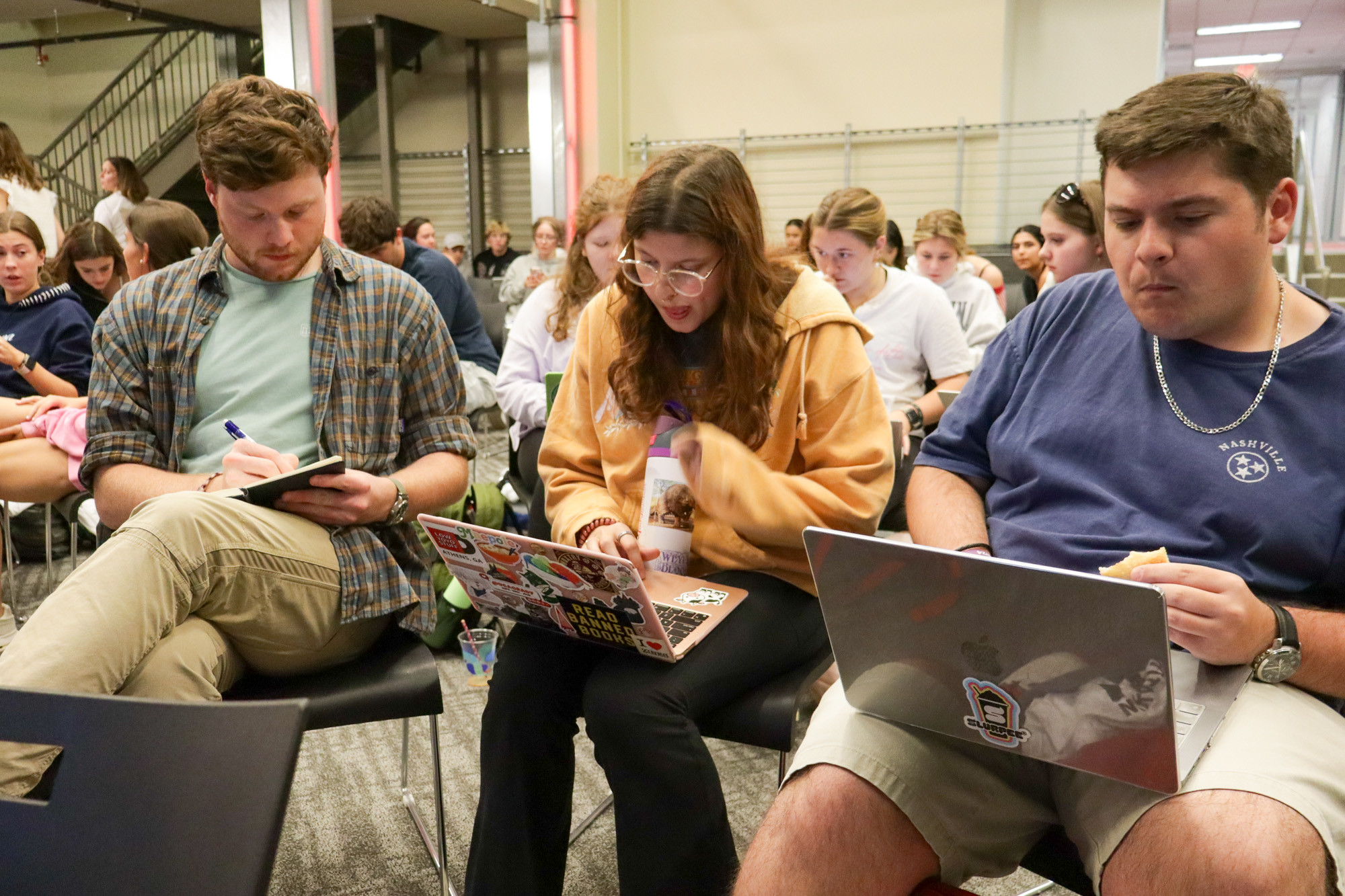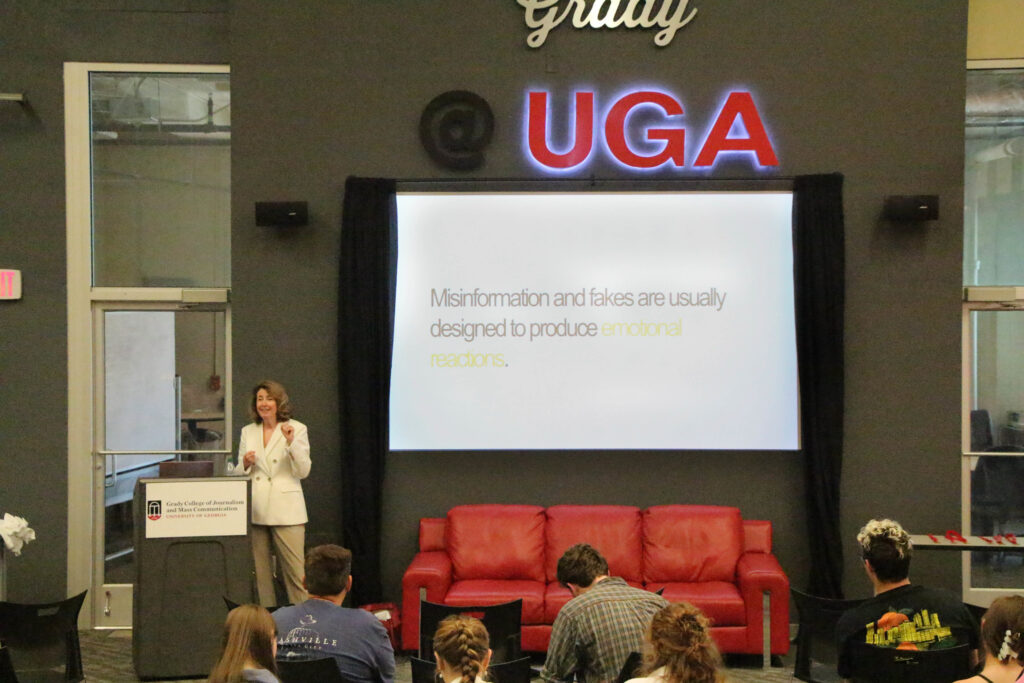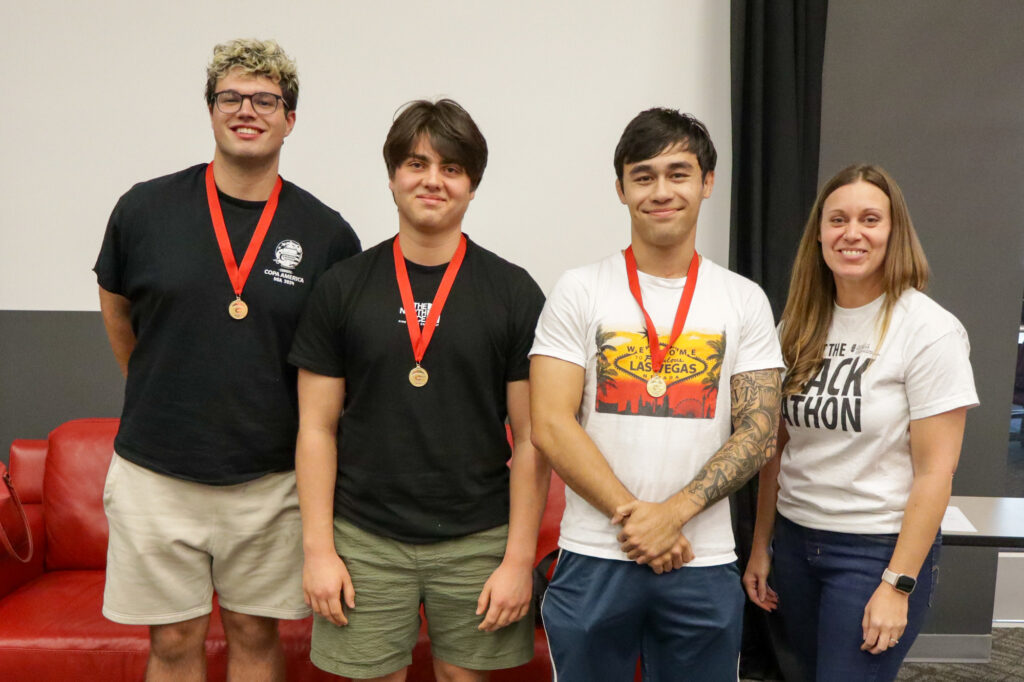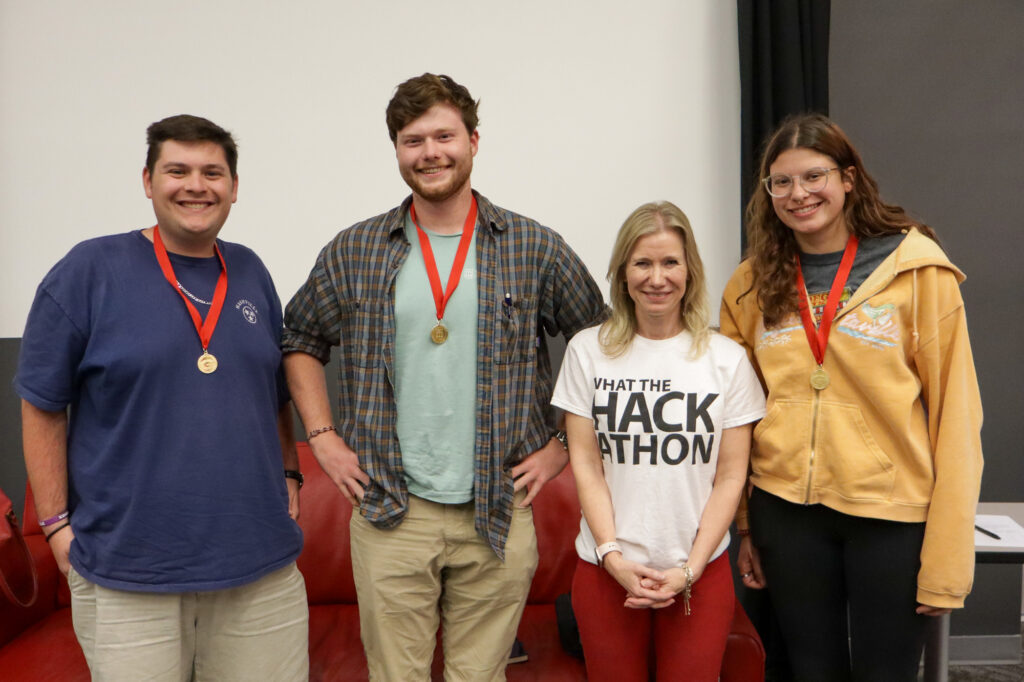Students fight disinformation at fall 2024 What the Hackathon

Students fight disinformation at fall 2024 What the Hackathon

University of Georgia students interacted with expanded and new Google tools for finding disinformation and won prizes, including Cox Institute medals, at the fall 2024 What the Hackathon.
The event was sponsored by the What the Hack podcast, hosted by Adam Levin, and offered students guidance from a Google News Initiative trainer on leveraging these tools to improve fact-checking.
Student teams competed against each other to identify real and fake online content using Google fact-checking tools. Google News Initiative trainer Debora Wenger, who serves as associate dean and professor in the School of Journalism and New Media at the University of Mississippi, provided tips about verifying the authenticity and accuracy of online media to fight misinformation in newsrooms and beyond.
The Fact Check Explorer, which helps Google debunk fictitious text and images, is just one example of the variety of tools available to journalists, students and the public.
Bob Sullivan, a veteran journalist and one of the founding members of MSNBC.com, also spoke with students about finding and defeating misinformation. Sullivan is the 2024 Cox Institute Industry Fellow.

“It was exciting to see the students dive into the exercise with both feet, using tools and techniques they’d learned on their own or from Prof. Debora Wenger,” Sullivan said. “It’s absolutely critical that the next generation of journalists learn the techniques used by misinformation and disinformation peddlers, so they can be inoculated against them. I always leave my time at Grady inspired and hopeful for the future.”
Jack Culberson, Patrick Hamilton and Sebastian Baggett won first-place, and Cox Institute medals, for correctly identifying falsified media images using multiple tools, while Parker McCollum, Sydney Shankman and Connor Joyce won second place.
“It was a great opportunity to apply what my classmates and I learned in class in a simulation of real-world activities,” Hamilton said.
Baggett said his team was able to use Google’s digital tools specifically during the competition.

“Since our team used the fact check search tool Google offers,” Baggett said, “we found a fact check from Snopes that determined the article we chose to analyze was false, which made picking apart the article easier and faster.”
The Cox Institute’s leadership, Keith Herndon, Lori Johnston and Amanda Bright, facilitated the event. What the Hackathons are hosted every semester as part of the Institute’s mission to train students in news literacy.
Kyser Lough, an associate journalism professor in the Grady College of Journalism and Mass Communication and new director of the Certificate in News Literacy, emphasized that mission at the start of What the Hackathon, the certificate’s signature event. Lough researches visual communication and solutions journalism, with an emphasis in photojournalism.
The Certificate in News Literacy hones students’ skills in discerning credible information and information disorder through critical examination of how people access, analyze, verify, create and share media messages — with an emphasis on news. The certificate is open to all UGA students.
The free Google News Initiative training was available through a partnership with the RTDNA (Radio Television Digital News Association) to equip journalists with tools and resources.
Author: Alexis Derickson